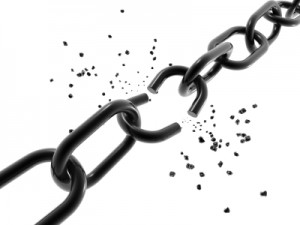Podcast: Play in new window | Download
Unresolved guilt and shame can quietly suck the life out of us. It can be a silent killer of our hope, relationships, and even life itself.
Until this point in our series we have mostly dealt with the trauma of the actions others have had on us. The injuries we endured. But there can be another side of Post-Traumatic Stress. The side that is tied to our own actions or inaction.
Today we dedicate this episode to this topic and all who are carrying a heavy burden of guilt or shame. There is hope!
Psychology can try to resolve these issues. Scientist can explain some of the neurochemicals involved. However, there is more.
Today I am sharing as a Christian that has experienced the mercy of God in my own life. I am sharing from my heart as a chaplain, pastor and priest.
People experience guilt for things done and sometimes things left undone. It can be powerful and if left unresolved can lead us down an even darker path.
We may have done things we dare not speak of to others. Things that violate our internal sense of right and wrong. Things that haunt us in our sleep. Things that are slowly torturing and twisting our souls.
As it is hidden it grows and takes on a life of its own. We can lose perspective and may things irrational thoughts about our actions.
Since we dare not speak of it, we may not see a good way to deal with it—let alone resolve the conflict. This can be a source of isolation. It can turn into anger, hatred, fear and self-loathing. We may seek to quiet the guilt with alcohol, drugs, gambling, or other destructive behavior.
Part of the solution is to bring it to light. But, how? With who? In some cases, if certain people found out, there may even be legal ramifications. Another may think, “If people know what I did…they would hate me…think bad of me…
Consider the story of King David in the Bible. He took the Bathsheba, the wife of Uriah, one of his soldiers on the front lines and got her pregnant. He called Uriah home so that he would spend time with her to cover up his betrayal and indiscretion. However, Uriah was so dedicated that he refused to stay with his wife. Then David sent Uriah back to the front and give the order that Uriah should be abandoned to be killed by the enemy. Wow! Who could come back from that?
From this we end up seeing a man who turns back to God. This is repentance, change, captured in Psalm 51.
Most of us probably cannot relate to King David for the specifics of what he did. We may, however, be able to relate to doing something that at another time we would find unthinkable.
In war unthinkable things may be done. Taking the life of another, even when justified by the rules of war, leaves a scar on the soul. A much worse scar may be left if things that go beyond that are done by us or those around us.
In many Christian traditions there is something called confession (or reconciliation). I prefer the term reconciliation. In these traditions it is considered a “sacrament”. These are moments and situations where God and interacts with us in a special and sacred way. For these traditions, including my own, things confessed in this context are absolutely sealed.
Penance, as part of reconciliation, is not about earning forgiveness. It is not about atoning for our sins. Rather, it is about taking actions to help our heart and mind conform to who we are created to be.
Consider the Apostle Paul. He once went about arresting, trying and voting to have followers of Jesus Christ executed for their faith. Then Paul, then called Saul, encountered this same Jesus and his life was radically transformed. Paul became the writer of most of what we call the New Testament part of the Bible.
I often hear the claim that people do not change. Perhaps this is true. At least part true. We may not be able to change on our own; but God working in us can transform us from what we were to what we were created to be.
Image courtesy of David Castillo Dominici on freedigitalphotos.net

